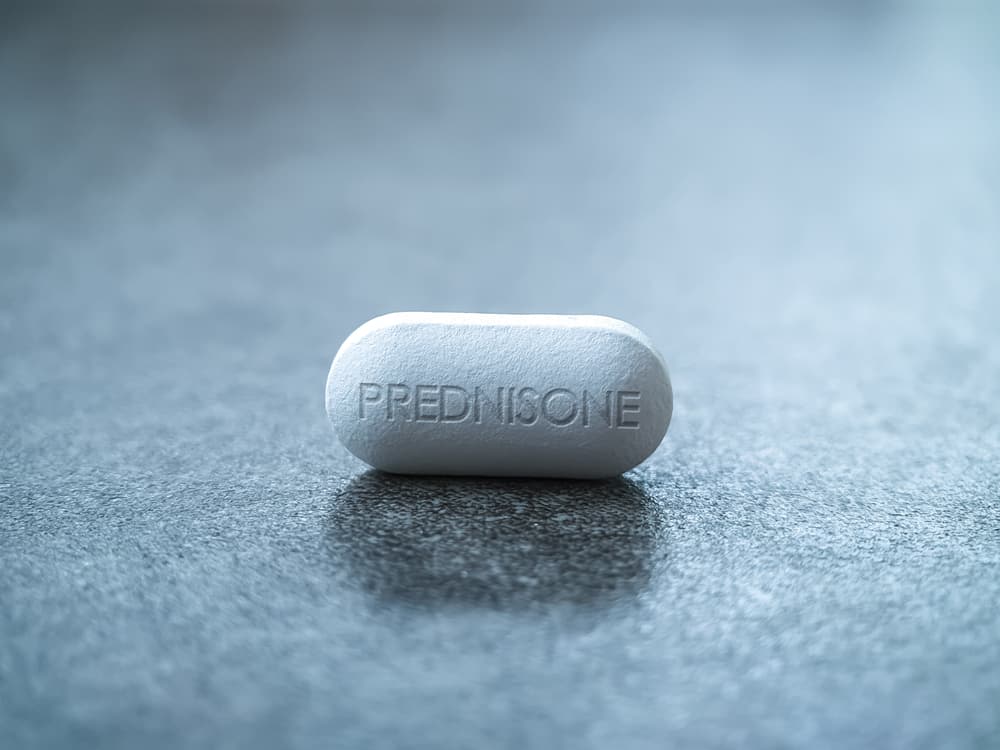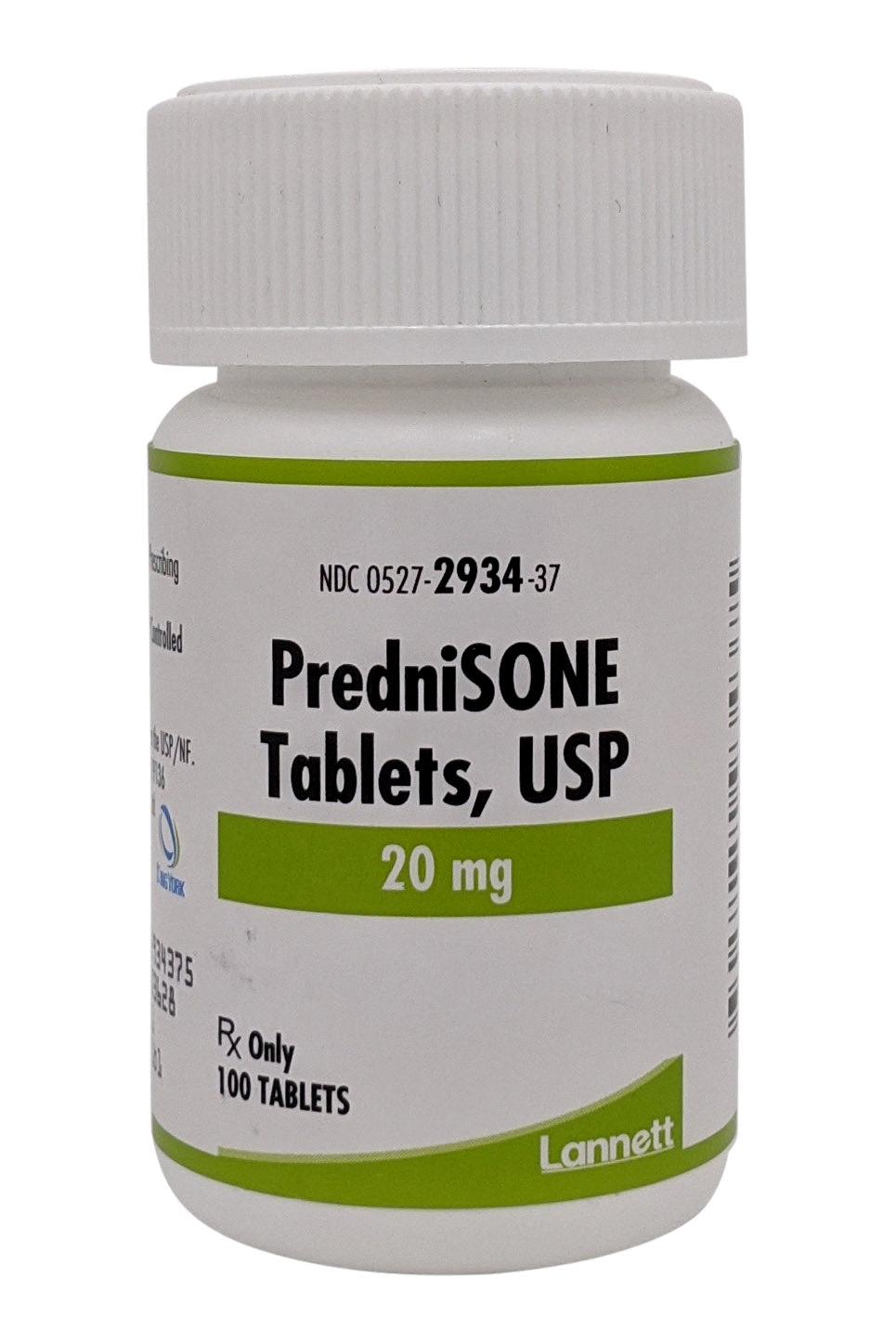Prednisone is a type of corticosteroid medication that is often prescribed to treat a variety of medical conditions, such as allergies, arthritis, lupus, and asthma. While this medication can be incredibly effective at reducing inflammation and managing symptoms, it can also cause a range of side effects that can impact your daily life. One common question that patients have is whether or not prednisone makes you tired.
The short answer is that yes, prednisone can cause fatigue and drowsiness in some people. This is because the medication affects the hormones in your body that regulate sleep and wakefulness. Specifically, prednisone can interfere with the production of cortisol, which is a hormone that helps you feel alert and energized during the day. When cortisol levels are disrupted, it can lead to feelings of fatigue and lethargy.
However, it’s important to note that not everyone who takes prednisone will experience this side effect. Some people may feel more energized or restless while taking the medication. Additionally, the degree of fatigue you experience may depend on the dosage and duration of your treatment. Higher doses of prednisone and longer treatment periods are more likely to cause side effects than lower doses or shorter treatment periods.
If you’re experiencing fatigue while taking prednisone, there are a few things you can do to manage this side effect. First, try to get plenty of rest and prioritize sleep hygiene. This means creating a relaxing bedtime routine, avoiding screens before bed, and keeping your bedroom cool and dark. You may also want to adjust the timing of your medication, taking it earlier in the day if you find that it’s interfering with your sleep.
It’s also important to talk to your doctor if you’re experiencing any side effects while taking prednisone. They may be able to adjust your dosage or recommend other treatments to help manage your symptoms. Never stop taking prednisone or adjust your dosage without consulting your doctor, as this can be dangerous and lead to serious health complications.
Prednisone can cause fatigue and drowsiness in some people, but not everyone will experience this side effect. If you’re struggling with fatigue while taking prednisone, make sure to prioritize rest and talk to your doctor about your symptoms. With the riht care and management, you can continue to effectively manage your medical condition while minimizing the impact of any side effects.
The Effects of Prednisone on Energy Levels
Prednisone is a type of corticosteroid medication that is often used to treat various inflammatory conditions, such as asthma, arthritis, and certain skin disorders. While it can be effective in reducing inflammation, it also comes with some potential side effects, including fatigue and tiredness.
One of the reasons why prednisone can make you feel tired is because it affects your body’s natural hormone balance. Specifically, it can interfere with the production of cortisol, a hormone that helps regulate your energy levels and stress response. When you take prednisone, it can acually suppress the production of cortisol, leading to feelings of fatigue and weakness.
Additionally, prednisone can also disrupt your sleep patterns, making it harder to get a good night’s rest. This is because it can interfere with the production of melatonin, a hormone that helps regulate your sleep-wake cycle. When your melatonin levels are disrupted, it can lead to insomnia, restlessness, and daytime fatigue.
Other possible reasons why prednisone can make you feel tired include changes in your appetite, weight gain, and mood swings. These can all contribute to feelings of lethargy and exhaustion, especially if you are already dealing with a chronic illness or condition.
It’s important to talk to your doctor if you are experiencing persistent fatigue or other side effects while taking prednisone. They may be able to adjust your dosage or recommend other treatments to help manage your symptoms and improve your overall quality of life.

Common Side Effects of Prednisone
Prednisone is a commonly prescribed medication for a variety of inflammatory and autoimmune conditions. While it can be effective in managing these conditions, it can also cause some side effects. The most common short-term side effects of prednisone include nausea, weight gain, and headaches. These side effects are generally mild and can be managed with over-the-counter medication or by adjusting the dosage of prednisone.
However, more serious side effects can occur with long-term or high-dose therapy. These can include fetal toxicity (which can harm a developing fetus), allergic reactions, and high blood pressure. Other potential side effects include increased risk of infection, mood changes, and insomnia.
It is important to note that not everyone who takes prednisone will experience side effects, and the severity of side effects can vary from person to person. Additionally, the benefits of prednisone may outweigh the potential risks for some individuals. If you are concerned about the side effects of prednisone, it is important to talk to your healthcare provider. They can help you weigh the risks and benefits of prednisone for your specific condition and provide guidance on managing any side effects that may occur.
Effects of Prednisone on Sleep and Energy Levels
Prednisone is a corticosteroid medication that may have different effects on different individuals. While it is not classified as a sedative, some people may experience drowsiness or fatigue while taking prednisone. However, other individuals may experience hyperactivity or restlessness.
The reason for this variation in effects is not fully understood, but it may be related to individual factors such as age, sex, medical history, and dosage of prednisone. Some studies suggest that prednisone can affect the levels of neurotransmitters in the brain, such as serotonin and dopamine, wich can impact mood and energy levels.
If you are taking prednisone and are experiencing sleep disturbances or hyperactivity, it is important to talk to your doctor. They may recommend adjusting the dosage or timing of the medication to better suit your needs and minimize any unwanted side effects.
Duration of Fatigue After Taking Prednisone
Fatigue is a common side effect of prednisone, a medication used to treat a variety of conditions such as inflammation, autoimmune diseases, and some types of cancer. The duration of fatigue after stopping prednisone can vary depending on several factors, including the dose and duration of treatment, the reason for taking the medication, and individual factors such as age, oveall health, and lifestyle.
In general, most people experience fatigue for a few days to several weeks after stopping prednisone. However, some people may continue to feel tired for several months or longer. This is especially true for individuals who took high doses of prednisone for a prolonged period of time or who have an underlying medical condition that affects their energy levels.
It’s important to note that fatigue can also be a symptom of the condition being treated with prednisone, so it’s crucial to discuss any ongoing fatigue with your healthcare provider to determine the cause and appropriate treatment. In some cases, your doctor may recommend gradually tapering off prednisone to minimize the risk of withdrawal symptoms and fatigue. Additionally, lifestyle changes such as getting enough sleep, eating a balanced diet, and engaging in regular exercise can help improve energy levels and reduce fatigue.
What Should I Avoid While Taking Prednisone?
Prednisone is a medication that can cause various side effects, and to minimize them, it is important to avoid certan foods and activities. While taking prednisone, you should avoid consuming “simple” carbohydrates and concentrated sweets, such as cakes, pies, cookies, jams, honey, chips, breads, candy, and other highly processed foods. These types of foods can cause an increase in blood sugar levels, which can lead to increased body fat or diabetes in some people. Furthermore, you should avoid alcohol consumption as it can worsen some of the side effects of prednisone, such as stomach irritation and mood changes. It is also important to avoid contact with people who have infections, as prednisone may weaken the immune system, making it more susceptible to infections. you should avoid activities that may cause injury or trauma, as prednisone can weaken bones and muscles, leading to an increased risk of fractures or strains.

Timeline for Improvement After Taking Prednisone
If you have been prescribed prednisone to treat a specific condition, you may be wondering how soon you can expect to feel better. The good news is that prednisone is generally a fast-acting medication, and you may start to notice improvements within the frst few days of taking it.
The speed at which prednisone works can vary depending on the severity of your condition, the dose you have been prescribed, and your individual response to the medication. For some people, prednisone can start to work within a few hours of taking the first dose. However, most people will start to notice improvements within one to four days of starting treatment.
It is important to note that while prednisone can provide relief from symptoms quickly, it is not a cure for the underlying condition. You should continue taking the medication as prescribed by your doctor, even if you start to feel better. It is also important to follow any other instructions provided by your doctor, such as dietary changes or lifestyle modifications, to ensure the best possible outcome for your treatment.
If you have any concerns about the effectiveness of prednisone or the duration of your treatment, you should speak to your doctor or healthcare provider. They can provide you with further information about what to expect during your treatment and answer any questions you may have.
Why Is Prednisone Hard On The Body?
Prednisone is considered hard on the body because it is a powerful steroid medication that affects many different systems in the body. Prednisone works by suppressing the immune system, whch can lead to a wide range of side effects. Some of the most common side effects of prednisone include weight gain, mood changes, increased appetite, difficulty sleeping, and fluid retention.
In addition to these side effects, prednisone can also increase the risk of developing infections and can affect the body’s ability to heal from wounds. Prolonged use of prednisone can also lead to bone loss, which can increase the risk of fractures. Prednisone can also cause changes in blood sugar levels, leading to an increased risk of diabetes.
While prednisone can be a very effective medication for treating a wide range of conditions, it is important to be aware of the potential side effects and to work closely with your healthcare provider to manage any issues that may arise. It is also important to take prednisone only as prescribed and to follow all instructions carefully to minimize the risk of side effects.
The Effects of Prednisone on Mental Well-Being
Prednisone can make you feel weird. Prednisone is a potent steroid medication that can cause a range of side effects, including psychological effects. Some people report feeling restless, irritable, anxious, or even depressed while taking prednisone. Others may experience changes in their sleep patterns or difficulty concentrating. Additionally, prednisone can cause physical side effects such as weight gain, bloating, and increased appetite. It’s essential to discuss any unusual or uncomfortable feelings you experience while taking prednisone with your healthcare provider to determine if any adjustments need to be made to your treatment plan.
The Benefits of Taking Prednisone
Prednisone is a medication that provides several benefits when taken as prescribed. It is primarily used to treat conditions such as asthma, allergies, and arthritis. When taken in the right doses, it reduces inflammation in the body, alleviates pain and swelling, and helps to improve breathing in patients with lung conditions.
Prednisone is also effective in treating skin conditions such as eczema and psoriasis. It can help to reduce itching, redness, and inflammation, allowing the skin to heal. Additionally, prednisone is used to prevent organ rejection in people who have undergone a transplant surgery.
Another benefit of prednisone is that it can help to boost the immune system. This can be helpful in treating conditions such as autoimmune diseases, where the immune system mistakenly attacks healthy cells and tissues in the body. Prednisone helps to reduce the activity of the immune system, reducing inflammation and preventing further damage.
The benefits of taking prednisone can be significant for those who need it. When used appropriately and uner the guidance of a healthcare professional, it can help to manage a range of conditions and improve quality of life for patients. However, it is important to be aware of the potential side effects of prednisone, which can include weight gain, mood changes, and increased risk of infection.

Source: haarstadveterinarydermatology.com
Common Side Effects of Steroids
Systemic steroids are known for their potent anti-inflammatory and immunosuppressive effects. However, they can also cause a range of side effects. Here are five common side effects of steroids:
1. Increased appetite: Steroids can increase your appetite and lead to weight gain, which can be especially concerning for those with pre-existing weight issues.
2. Mood changes: Steroids can cause mood swings, from euphoria to depression, anxiety, and irritability. These changes are usually temporary but can be severe in some individuals.
3. Muscle weakness: Steroids can cause muscle weakness, partiularly in the legs and arms. This is due to the breakdown of muscle tissue and can lead to decreased physical performance.
4. Lower resistance to infection: Steroids suppress the immune system, making you more susceptible to infections. This can be especially dangerous for those with pre-existing health conditions or in the presence of an ongoing infection.
5. Easy bruising: Steroids can cause thinning of the skin, making it more susceptible to bruising and other injuries. This can be particularly concerning for those on long-term steroid therapy.
It’s important to note that the severity and frequency of these side effects can vary depending on the type, dose, and duration of steroids used. If you experience any of these side effects, it’s important to talk to your healthcare provider.
Side Effects of Short-Term Prednisone Use
Corticosteroids, such as prednisone, are commonly prescribed for short-term use to treat a variety of conditions, including allergic reactions, asthma, and inflammatory disorders. However, even at low doses, short-term use of prednisone can cause several side effects.
One of the most serious risks associated with prednisone use is an increased risk of sepsis, a potentially life-threatening condition caused by an infection that spreads throughout the body. Additionally, prednisone use can increase the risk of venous thromboembolism, wich is a blood clot that forms in a vein, and can lead to complications such as pulmonary embolism or stroke.
Another common side effect of prednisone use is an increased risk of bone fractures. Corticosteroids can cause a decrease in bone density, which can lead to osteoporosis and an increased risk of fractures, particularly in older individuals.
Other side effects of short-term prednisone use include weight gain, fluid retention, mood changes, insomnia, and increased blood sugar levels. These side effects are usually mild and resolve once the medication is discontinued.
While short-term use of prednisone can be effective in treating various conditions, it is important to be aware of the potential side effects, particularly the risk of sepsis, venous thromboembolism, and bone fractures, and to discuss any concerns with a healthcare provider.
The Strength of Prednisolone as a Steroid
Prednisolone is a strong steroid medication. It belongs to a class of drugs called corticosteroids, which are known for their potent anti-inflammatory and immunosuppressive effects. Prednisolone can be used to treat a wide range of conditions, including autoimmune disorders, allergic reactions, and inflammatory diseases. However, beause of its strength, doctors typically try to use the lowest possible dosage that is effective and may adjust the dosage during treatment. Prednisolone can also have a number of side effects, particularly if used for long periods of time or in high doses, so it is important to closely monitor patients who are taking this medication.
The Duration of Prednisone Treatment for Inflammation
Prednisone is a type of steroid that is commonly used to treat inflammation. The duration of prednisone treatment for inflammation depends on the severity of the condition being treated. Short-term courses of prednisone, typically lasting from a few days to a few weeks, may be prescribed to help manage acute inflammation, such as in the case of a severe asthma attack or a flare-up of rheumatoid arthritis. In some cases, a longer course of treatment may be necessary, particularly for chronic conditions such as lupus or inflammatory bowel disease. However, it is generally recommended that prednisone be used for the shortest possible time to minimize the risk of side effects. Your doctor will work with you to determine the appropriae course of treatment based on your individual needs and medical history. It is important to follow your doctor’s instructions carefully and to never stop taking prednisone suddenly, as this can cause withdrawal symptoms.

Conclusion
Prednisone is a powerful corticosteroid medication that can effectively treat a wide range of medical conditions. However, it is important to be aware of its potential side effects, including weight gain, nausea, headaches, and difficulty sleeping. More serious side effects such as fetal toxicity, allergic reactions, and high blood pressure may also occur with long-term use or high doses. It is essential to follow your doctor’s instructions carefully when taking Prednisone and to report any concerning symptoms promptly. While Prednisone can be a valuable tool in managing certain health conditions, it is crucial to weigh the benefits aganst the risks and to use it only as directed by a healthcare professional.
